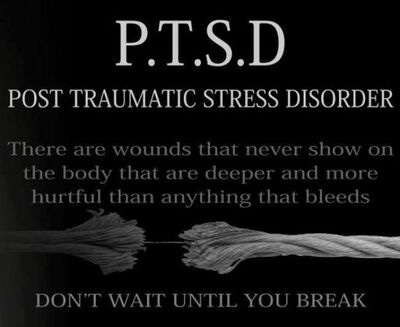Triggered As Hell-And Still Standing!
For every veteran and survivor, protect your peace turn off the TV
With the recent U.S. strike on Iran, emotions are high. While staying informed is important, the constant exposure to intense news coverage can overwhelm the nervous system, especially for those already carrying trauma. As someone living with PTSD, I urge everyone to protect their peace. Turn off the TV. Step back from the notifications. Let yourself breathe. This isn’t avoidance—it’s self-care.
And let’s be honest: if politicians want to play war games, they should try living with the aftermath. The long nights. The flashbacks. The ripple effects on families and relationships. For some of us, the war didn’t end when we came home—it just changed shape. The headlines may fade, but the impact doesn’t. I don’t get to forget, and I sure don’t get to “move on” because the story aged out of the news cycle.
I didn’t ask to be triggered. Most of us didn’t. But here we are—navigating trauma in a world that won’t slow down. This post is for anyone who’s ever flinched at a news alert or felt their chest tighten without warning. As a Gulf War vet living with PTSD, I carry that weight every day. And I know I’m not alone. So I’m here to tell you: you’re allowed to shut it off, step away, and protect your peace without apology.
PTSD isn’t just about war stories. It’s about the body remembering what the mind tries to forget. About jumping at a sound. About tightening your jaw at a headline. About trying to explain why a simple image can turn your whole day upside down.
While trauma affects people differently, some common factors can increase the risk for PTSD:
Exposure to severe or prolonged trauma
Injuries sustained during the traumatic event
Past traumas, especially in childhood
High-stress professions like military service or emergency response
Co-occurring conditions like anxiety or depression
We can’t always control what’s happening in the world, but we can choose how we engage with it. I urge you—especially if you know someone with PTSD or live with it yourself—to take breaks from the news. Turning off the TV doesn’t mean you’re uninformed. It means you value your mental well-being.
When I feel the spiral beginning, I lean on a few tools:
5-4-3-2-1 grounding exercise
Box breathing (Inhale 4 seconds, hold 4, exhale 4, hold 4)
Going outside, even if it’s just for fresh air
Connecting with someone—a friend, therapist, or fellow vet
None of these tools "fix" PTSD. But they help me meet the moment with compassion instead of fear.
Remember that you are not alone and can reach out for assistance.
Here are some trusted resources:
Veterans Crisis Line — Call/text 988, then press 1
National Suicide & Crisis Lifeline — Call/text 988
PTSD Coach App — iOS | Android
Wounded Warrior Project — woundedwarriorproject.org
NAMI HelpLine — 1-800-950-NAMI (6264) or text "HelpLine" to 62640
We didn’t ask for this weight—but we carry it anyway. And we speak, not for pity, but for truth. If you’ve lived through trauma and find yourself triggered by the endless churn of conflict, politics, and performance journalism, know this: you’re not weak for feeling it—you’re human for surviving it. The next time someone treats your reaction like an inconvenience, remind them that real strength isn’t measured by silence. It’s measured by showing up every damn day. CellyBlue is triggered as hell, and still standing.
CellyBlue-I Do Know This!
If this post resonates with you, share it. Someone you know might be silently struggling and need the reminder: they are seen, they are strong, and they are not broken.








Thank you 🙏
No Wars ✌️